Opening Doors Project To Host Black Legacy Project Concert
By Ellen Putnam
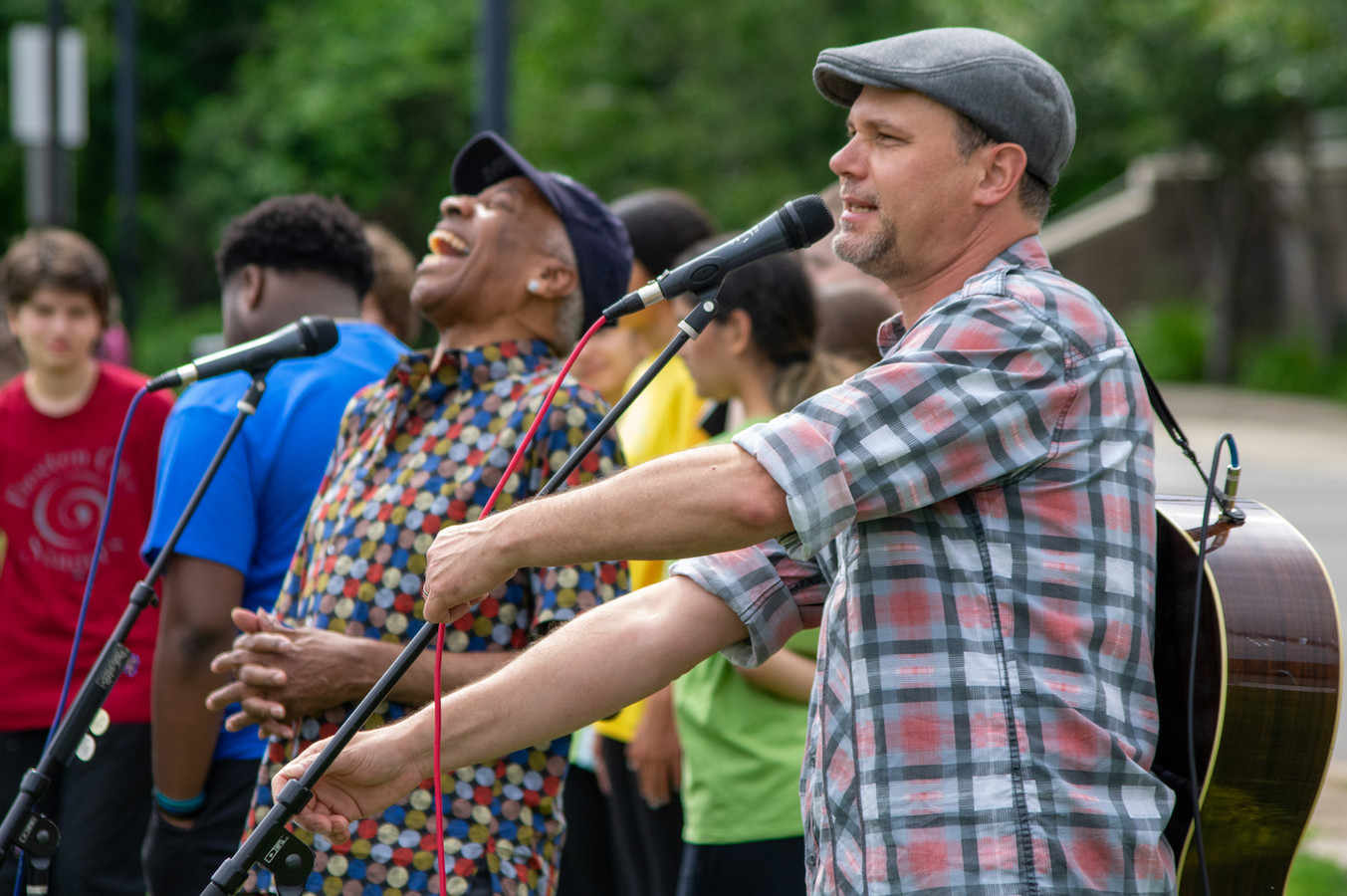
Reggie Harris, left, and Alastair Moock
Photo From The Opening Doors Project
The Opening Doors Project will present a concert by the Black Legacy Project’s touring band on Sunday, March 2nd at 7pm at the Melrose Unitarian Universalist (UU) Church. The concert will be accompanied by a conversation led by Melrose-based singer-songwriter and Opening Doors Project co-founder Alastair Moock.
The Opening Doors Project arose out of a pandemic-era collaboration between Moock, who is white, and his longtime friend and fellow musician Reggie Harris, who is black. In response to the murder of George Floyd, Moock and Harris created a program for children called Race and Song: A Musical Conversation, where students could learn, ask questions, and have conversations about race through the lens of music.
“We had both been doing this work in schools for many years on our own,” Moock reflected, “but we discovered that the sum is greater than the parts. We get a different reaction when we walk into the room together. There’s something disarming about seeing the combination of the two of us. The barriers don’t seem to go up in the same way.”
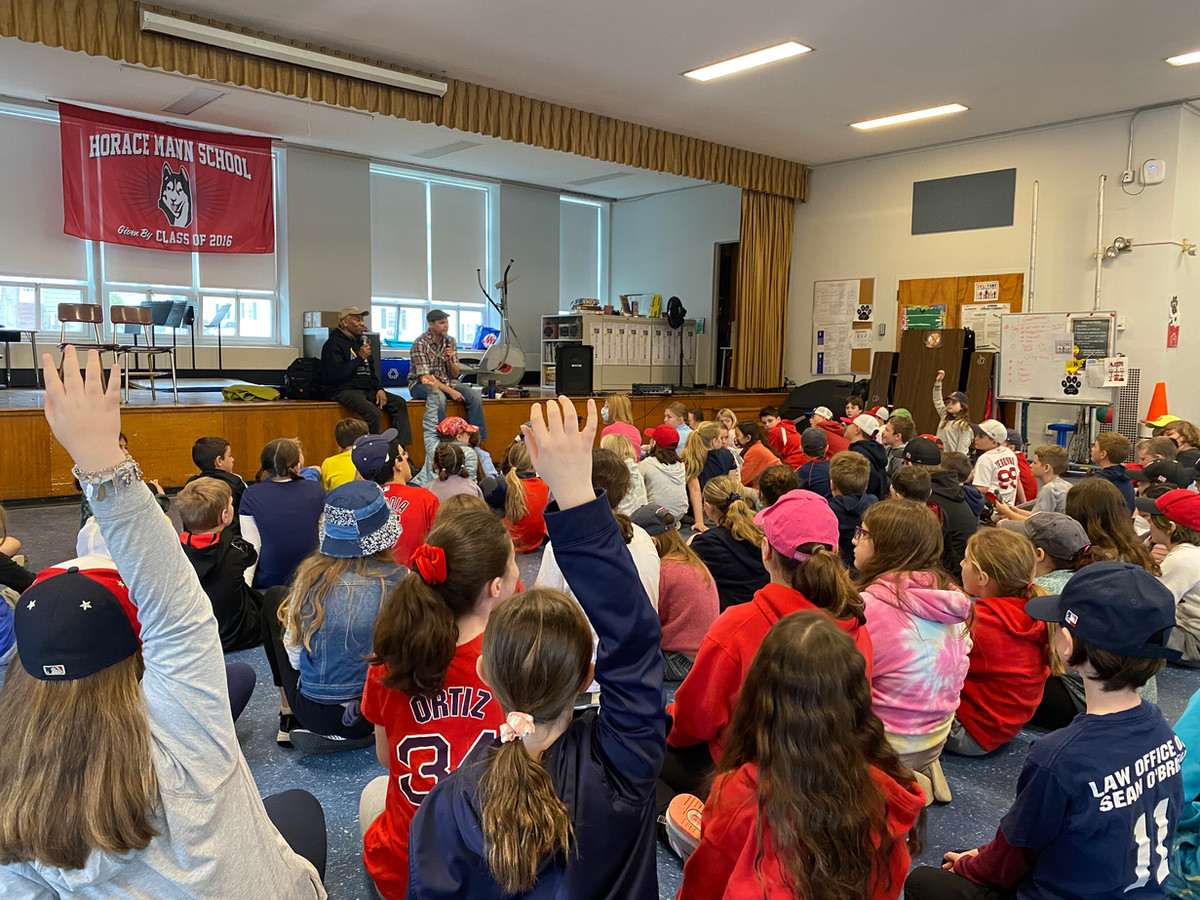
Harris and Moock presenting Race and Song to students
Photo From The Opening Doors Project
As Moock began to consider what a similar program for adults might look like, the anti-racism team at the UU Church, where Moock is a member, shared that they had some funding they hadn’t been able to use due to the pandemic. Together with Stacey Babb, who is also a member of the UU Church, Moock planned an online concert and conversation, and the Opening Doors Project was born.
“There are two things that make our work unique,” explained Moock, “We lean into the interracial dynamic and we lean into our music. Our hope is that those two things together help bring barriers down and make it easier for us to reach people where they are.”
At most Opening Doors concerts, Moock serves as the host for guest musicians who represent a variety of genres and traditions. In addition to different styles of music with African American roots, Opening Doors Project has presented concerts of pan-Latin music and Indian American music.
“Each concert feels very different, and as I learn the format, I continue to tweak it,” Moock reflected, “to move things in a direction that feels productive and honest to the moment. Every artist is different, and every dynamic can be different.”
Moock noted that, especially here in Melrose, where 80% of the population is white, audiences often skew in that direction. “That’s a loaded dynamic to start with,” he said, but “the vast majority of conversations have been really productive and well received on both ends,” despite occasional moments that can be uncomfortable.
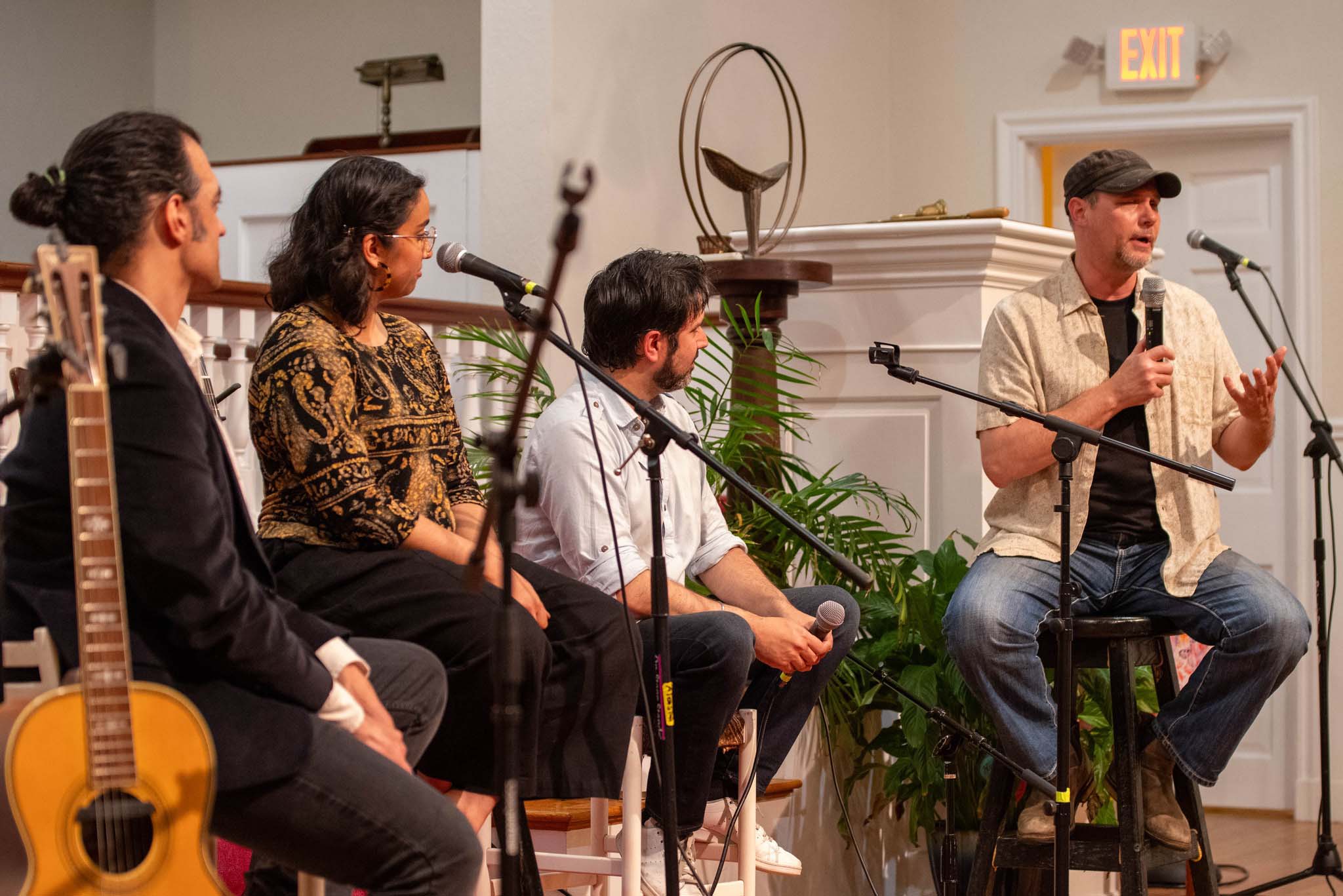
Moock, right, at the Desi Roots, Boston Branches concert at the Melrose UU Church last year
Photo From The Opening Doors Project
“Everyone who comes and engages with this is doing it for a reason,” Moock pointed out, “and no one’s coming in blind-sided. Some musicians don’t want to do this. They’re not interested in this dynamic and these conversations. So the people who do it are choosing to engage.”
“We’re purposely stepping into uncomfortable positions,” he went on. “Having interracial conversations about race is hard. The whole reason to have them is because it’s hard. There’s a certain amount of squirm that’s just part of doing this. The hope is that everyone involved can come with thick skin and be ready to really listen and learn and not just become defensive.”
The Black Legacy Project, which will be performing next week, holds residencies around the country in which participants of all races have community discussions and record old and new songs, all focused on the Black American experience. “They do work that is very parallel to our own work,” explained Moock, “so we’re just providing our platform and space here for them to do what they do.”
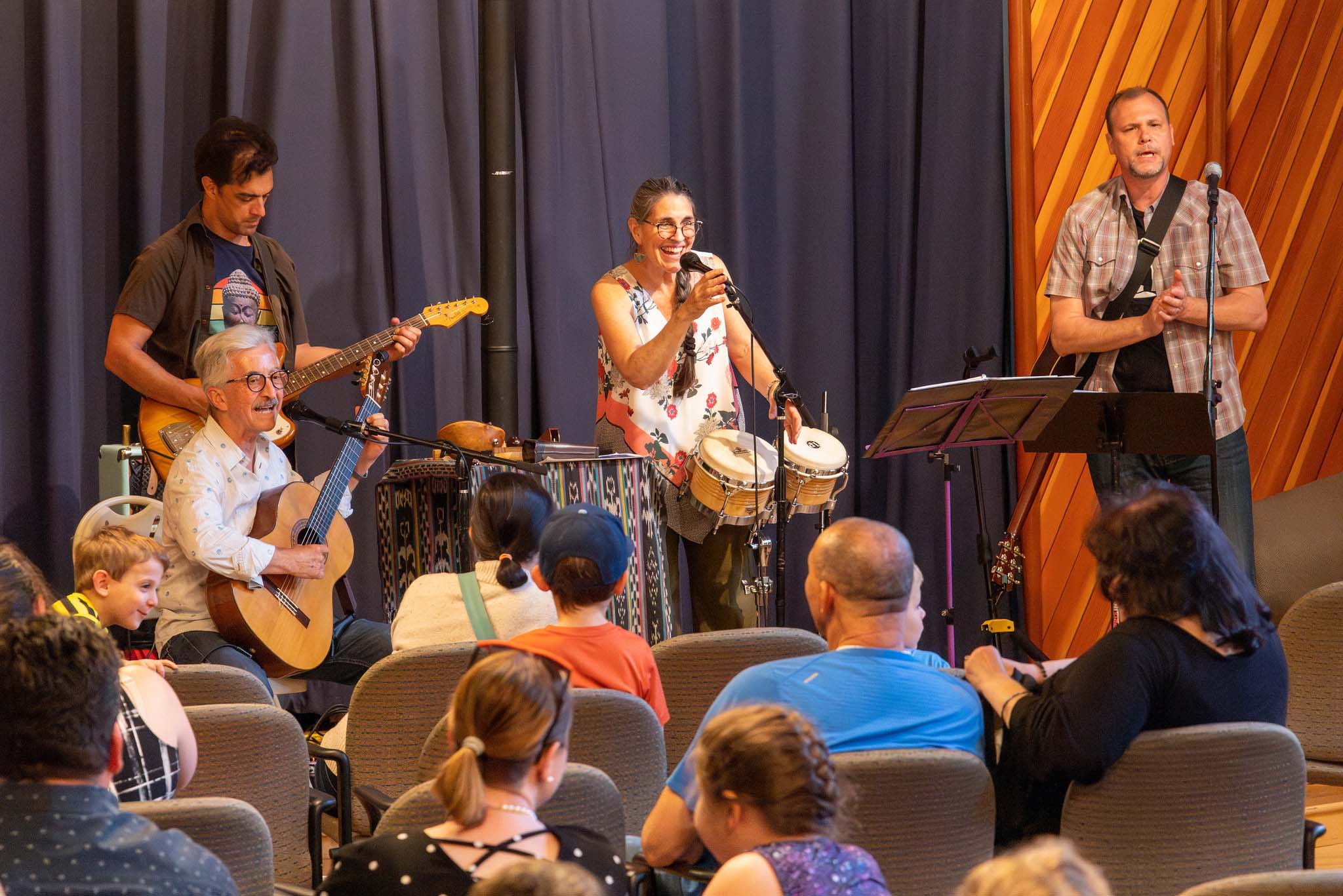
Sol y Canto at Temple Beth Shalom in 2023
Photo From The Opening Doors Project
While the Opening Doors Project presents concerts throughout the Boston area, Melrose has hosted many of them, largely because of Moock and Babb’s connections in town. Many of the concerts have been at the UU Church, with Temple Beth Shalom hosting one as well. The Melrose Cultural Council, Messina Fund, and the Melrose Coop Foundation have all provided funding for Opening Doors Project concerts, which are usually free to attendees. “There’s a good, strong arts community here,” Moock noted, “with lots of arts funding resources.”
Moock also pointed out that Melrose, like many similar communities in the region, has been shaped by a long history of racial discrimination. Redlining, for example, prevented black families from buying homes in specific areas until the Fair Housing Act of 1968. “Most homeowners don’t understand how recent that history is,” Moock reflected. “This isn’t something they teach in schools. These are the subtleties of institutional racism,” he went on. “It’s not about opportunity in the moment. It’s about generational wealth and accumulated advantages over generations. And Melrose is, one hundred percent, part of that history, whether or not we recognize it.”
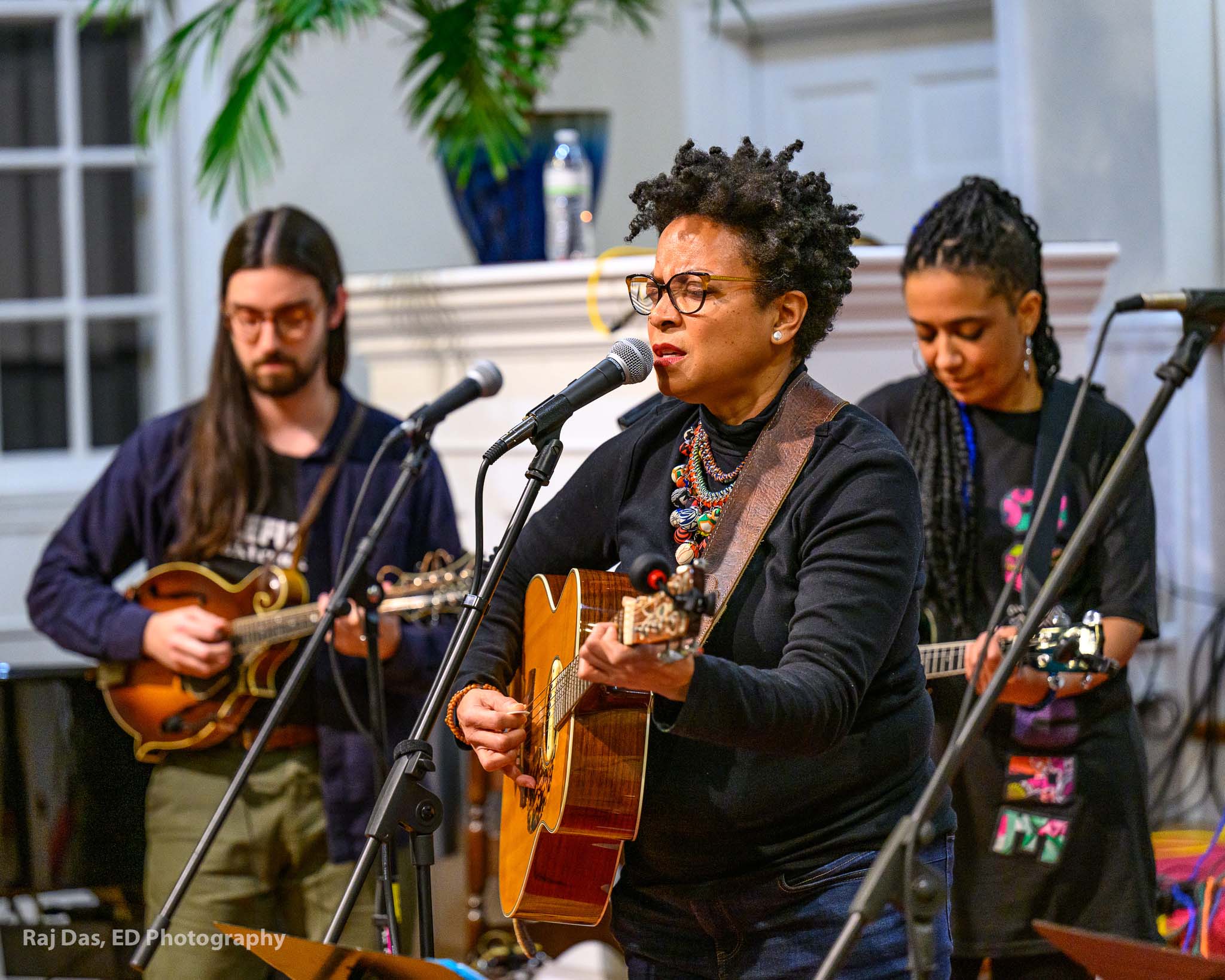
Members of The Folk Collective performing at the Melrose UU Church last year
Photo Credit: Raj Das, ED Photos
From The Opening Doors Project
“But,” Moock added, “I feel fortunate to live in a town where there are so many people who are open to learning and hearing about and engaging with these issues.” Moock helped found the Racial Justice Community Coalition, which recently merged with Friends of Melrose METCO and works on issues of diversity, equity, and inclusion (DEI) in Melrose.
The current moment is challenging for this kind of racial justice work, with DEI initiatives in government as well as in private corporations being disbanded or scaled back. “This is nothing new for people who have been involved in the struggle for their whole lives,” Moock reflected. “It just feels new to people who have convinced themselves that there’s some tide shifting.”
“The world is changing around us,” Moock concluded, “but we can only be responsible for the changes in ourselves. And that’s what Opening Doors is about. It’s an opportunity for people to make changes and become real, committed parts of the struggle. Those who are ready to hear and be involved will come. For other folks, it’ll be here when they’re done riding the tide.”
The Black Legacy Project will be performing at 7pm on Sunday, March 2nd at the Melrose Unitarian Universalist Church. The concert is free to all, but reservations are required. Visit The Opening Doors Project website to learn more.

Follow Us: